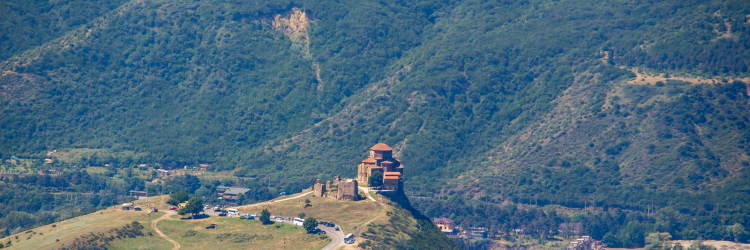Given my Irish roots, I took pleasure in the 1995 publication of a book called "How the Irish Saved Civilization." It described how Irish monks provided the bridge for Europe between the fall of Rome and the rise of medieval states by preserving and copying the great works of Western thinking during the Dark Ages.
That book popped to mind when I recently read a fascinating piece in Wired about how monks today have moved beyond making cheese, beer and other products to support their ascetic communities and are now taking on gig work that wouldn't have been foreign to their predecessors all the way back in the sixth century in Ireland. The trend suggests just how far the gig economy can stretch, if we think about the issues creatively enough.
The article in Wired describes how communities of monks and nuns are gravitating toward electronic piecework, largely through a group called the Electronic Scriptorium. Like their predecessors in the Dark Ages, they are curating knowledge, for instance by putting libraries' card catalogs into the formats that they must be in to for the collection to be accessible online.
The article says: "Several monastic communities are working together to catalog approximately 2 million photographs in the archives of The New York Daily News; they will soon begin on those of Time magazine. Benedictine monks near Abiquiú, New Mexico, have worked to catalog public and school libraries, and at the Incarnation Priory in Berkeley, California, monks have edited computer files for Readmore, a New York subscription information company. In Lufkin, Texas, cloistered Dominican nuns have digitized records of the National Institute for Occupational Safety and Health. In the past four years, monks and nuns have transferred a dizzying array of information from paper to cyberspace: the medical archives of Johns Hopkins University Medical Center, the files of major law firms, the records of government agencies, the recipe collections of Gourmet and Bon Appétit magazines, and the catalogs from the Yale University undergraduate library as well as more than 100 smaller ones."
What a wonderful fit the work has turned out to be. The piecemeal nature of the tasks fits well with the days in monasteries and convents, which are organized around prayer, study and contemplation. The monks and nuns are educated, careful and patient. While outsourcing firms in the Philippines, India and elsewhere can do the same sort of work the monks and nuns do, the fact that employees there typically aren't working in their first language can be an impediment given the exacting nature of cataloging.
The article says: "In doing a library catalog, the worker has to know that 'Shakespear' isn't correct.... The worker must be able to catch it when the Bibliofile program truncates the first A of a title, mistaking it for coding. When logging in a recipe from Gourmet, he or she should recognize that a recipe calling for '2 cups baking powder' would make a loaf the size of an apartment."
The monks and nuns don't need much income to support their ascetic lifestyles, so they afford to earn just $12 to $14 an hour. The work does require some investment in technology -- but not a lot. A group of monks mentioned in the article makes do with a few computers that use the Intel 386 chip, which was state of the art, oh, 35 years ago.
While we all talked about "remote work" during the pandemic, which meant we could be on our computers in front of the TV in our gym shorts and T-shirts, the monks and nuns can be truly remote. The group in Abiquiú, New Mexico, for instance, lives 13 miles from the nearest paved road. They operate on solar power and have just one cellphone for emergencies -- no one is getting distracted by notifications as the monks sit there, cataloging, in their long robes and cowls.
Some say they appreciate that the work gives them at least a bit of a connection to the outside world. One monk said he "maintains his sense of humor by keeping a running list of his favorite goofy titles. His favorite so far is Lewis Grizzard's 'Don't Bend Over in the Garden, Granny, You Know Them Taters Got Eyes.'"
I'm not saying that the monks and nuns represent a breakthrough in the gig economy -- though the Electronic Scriptorium might be worth a call for some organizations, because I could imagine some insurance work being a good fit -- but I do think the story shows just how remote work can be and what sorts of talent we can find if we look hard enough and fit seamlessly into a group's lifestyle.
I also just thought the story was a lovely one and wanted to share -- while reminding you that the Irish saved civilization.
Cheers,
Paul


